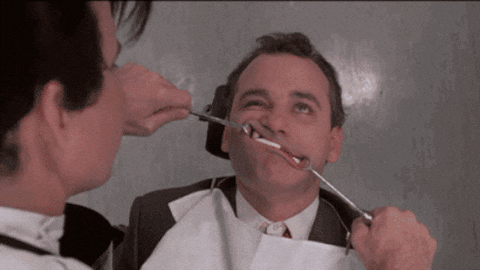The collective bargaining agreement between the U.S. Women’s National Soccer Team and U.S. Soccer expires on December 31. The players have been petitioning for pay equal to what U.S. Soccer pays the Men’s National Soccer Team. Former national team goalkeeper and World Cup and Olympic champion Hope Solo shared with GOOD her thoughts on the continuing battle for equity as the deadline nears. The following are her words, as told to Jon Baum:
I’ve been passionate about the fight for equal pay for a long time, and whether or not I’m on the national team has no bearing on that. It’s something I pushed for during my close to 20 years on the team, before we even filed the Equal Employment Opportunity Commission claim. I won’t be sidelined because I’ve been fired. I still have an EEOC claim filed and it’s something that I intend to go full-force forward with.
Over the years on the national team, my eyes were opened to the inequities between men and women—and not just within soccer—around salary, media coverage, endorsement dollars, and marketing dollars. Equal pay isn’t just a women’s rights issue, it’s a human rights issue
Many players in the past have tried to fight for equal pay, but we didn’t have leadership that would take us all the way, that wasn’t fearful in going up against the federation. U.S. soccer has great attorneys, they have a lot of money, and they were our employer, so we were fearful to take this fight as far as it needed to go. Players became accepting of making a decent salary. And when I say decent, I mean it’s a good living here in America, but it in no way compares to our counterparts on the men’s team.
This is a battle, this is a fight, and when you’re talking about power, people don’t just give that away. You have to fight for it. And I think it’s what has held many movements back, held many revolutions back. People don’t want to lose what they already have, whether it’s their jobs, the comfortable lifestyle that they have—people are scared to go all the way in.
So now we’ve pushed it, we’ve filed a claim with EEOC, and I can only hope and pray that the team will continue to remain united and stand strong. We always knew it was going to get really scary and the pressure was going to mount, especially now. The collective bargaining agreement (CBA) expires on December 31, and right now, people are getting scared—around future monies, health insurance, the new contract, going on strike, the scheduling of games. But right now is the time when the team must stand strong—stronger than ever before—and not buckle to U.S. Soccer.
Federation President Sunil Gulati and U.S. Soccer are putting pressure on the players. I know that’s happening. I’ve seen many different CBA negotiations during my time on the team, and the federation’s approach has not changed one bit. Their strategy is to instill fear in the players—to divide and conquer us. I had a great relationship with Sunil, to be honest, and he would reach out to me often. But he’s also good at what he does, and he tries to get close to the players to smooth them over.
You can’t be friendly with Sunil and hope to push for change. True equality is not going to be given, it’s not going to be bargained for. We have to take it and stand fully for what we’ve earned.
I’ve heard both the head of communications for U.S. Soccer and the CEO call us girls instead of women. And maybe it’s not on purpose, but I do believe male chauvinism is institutionalized in America, and U.S. Soccer is no different. I believe we have a better product on the field than the men’s team does. We have earned money for the federation, and no one can deny the fact that we are entertaining, to not only our country, but to many places around the world where we have supporters who tune in.
But in the past, U.S. Soccer has literally said to us, ‘This is the budget that we’re willing to spend on the women’s team for the next four years. Within that budget, within that money that’s allotted to the women’s team, we will let you guys tell us how you want to allocate it.’ That’s not negotiating. That’s our employer telling us what the numbers are going to be and then us trying to put the puzzle together and figure out how to make it work.
They will continue to intimidate, continue to control the negotiations, and continue to tell us what they are going to allocate for us and hope that eventually we buckle. It’s happened every single time for the 20 years I was on the team.
It’s hard to understand U.S. Soccer’s argument on why we don’t deserve equal pay, other than we’re just women and women are second tier to men. Of course U.S. Soccer doesn’t want to pay out millions of dollars more either, but I also think it goes back to the institutionalized male chauvinism among the people who work at the federation, the people who are on the board, and even many of the staff members who are hired by U.S. Soccer.
The 60 Minutes segment opened a lot of people’s eyes—especially people who maybe don’t follow sports or haven’t followed this story—because their audience is much bigger than the ESPN watchers. It’s hard for us to get some of the information out around the marketing money put into the women’s team versus the men’s team, but the inequities there are staggering. While we do get good coverage during World Cup and the Olympics, I’m talking about what happens outside those time periods. Let’s say we have 22 domestic games in a non-Olympic year. Look at the marketing dollars put into every single one of those games—the men’s marketing dollars versus the women’s marketing dollars.
Say the men sell out a stadium with 35,000 or 40,000 tickets, and we sell only 20,000. There’s a reason for that. It doesn’t mean that we’re less popular, it means that there are less marketing dollars put into it. It’s Marketing 101. The more money you put in, the more viewership you get, the more your dollars you’re going to bring in.
We also have to ask companies who say they support women’s sports and run these great commercials about empowering women, why their marketing and endorsement spends are so drastically different between men’s sports versus women’s. I know apparel companies, broadcasters, and other advertisers who support the sport can do so much more to put women on a more equal playing field. And then you have ESPN. On any given day you can see men’s sports on television, but women’s coverage amounts to around 4 percent. How can the masses gain respect for women’s sports when they don’t continually see them on television?
[quote position="right" is_quote="true"]It’s just so maddening to think that this is where we are in this day in age. We’re fighting tooth and nail just for equality.[/quote]
These companies need to do better. Companies all over the world need to do better and invest in women because they have the money and influence to do so. We need more money put into the women’s game around world, whatever the sport, to grow at the same rate men’s sports have grown. We here in America are fighting—especially the soccer team—but we need to fight for women all over the world.
The players in Colombia barely get paid. In the Olympics, we had a nightmare game against Colombia, I personally had a nightmare game against Colombia. But you know what? They showed up, they played with so much heart, with so much passion for all to see because they knew the world was watching the American team and they earned a draw! It was incredible. But they’re not getting paid adequately. They barely get new boots to play in, they barely have enough soccer balls, they barely have fields to train on. How are they going to continue to grow at the same rate their men’s team is growing?
We have to push for all of women’s sports, not just here in America. And that’s why the Americans have to fight first. We are the front-runners and if we can push for change, we can set a precedent that will lead other federations to follow suit.
We have the numbers, we bring in the revenue, we have the fan base. It’s just so maddening to think that this is where we are in this day in age. We’re fighting tooth and nail just for equality. Quite frankly, based on our performance, we should be getting paid more than the men, but we’re not even pushing for that, we’re pushing for equal pay.
Earlier this month, I came out with a t-shirt campaign called ‘The Future I$ Equal’, and you wouldn’t believe the amount of hate I received. I’m used to people thinking I’m a loudmouth, but none of that ever bothers me. But to see this kind of hate around women pushing for equality, women asking for equal pay, to see that hate is mind blowing. People were saying things like ‘Get back in the kitchen,’ ‘Female athletes suck,’ ‘We hate watching women’s sports.’ To see all that hate—it’s prevalent in this society that we live in.
If there’s no new CBA and the players decide to strike, there will be pressure on both sides. The federation will have to come to the table with a proper agreement, one that hopefully has a guiding principle of equality. The players are going to feel the pressure of not getting paid, not playing games, losing health insurance. Right now is a pivotal, pivotal time in continuing to keep the momentum moving forward. We have so much support around the world. Now is the time to not back down.
This is scary. I’ve seen it time and time again where our team has voted to go on strike because we believe in what we’re doing, and then in the final minutes cave because U.S. Soccer found a way to intimidate and scare the players. I really hope that it’s different this time.




















 A collection of toilet paper rollsCanva
A collection of toilet paper rollsCanva A bidet next to a toiletCanva
A bidet next to a toiletCanva A cute pig looks at the cameraCanva
A cute pig looks at the cameraCanva A gif of Bill Murray at the dentist via
A gif of Bill Murray at the dentist via  A woman scrolls on her phoneCanva
A woman scrolls on her phoneCanva
 A confident woman gives a speech in front of a large crowdCanva
A confident woman gives a speech in front of a large crowdCanva

 Creativity and innovation are both likely to become increasingly important for young people entering the workplace, especially as AI continues to grow.
Creativity and innovation are both likely to become increasingly important for young people entering the workplace, especially as AI continues to grow.